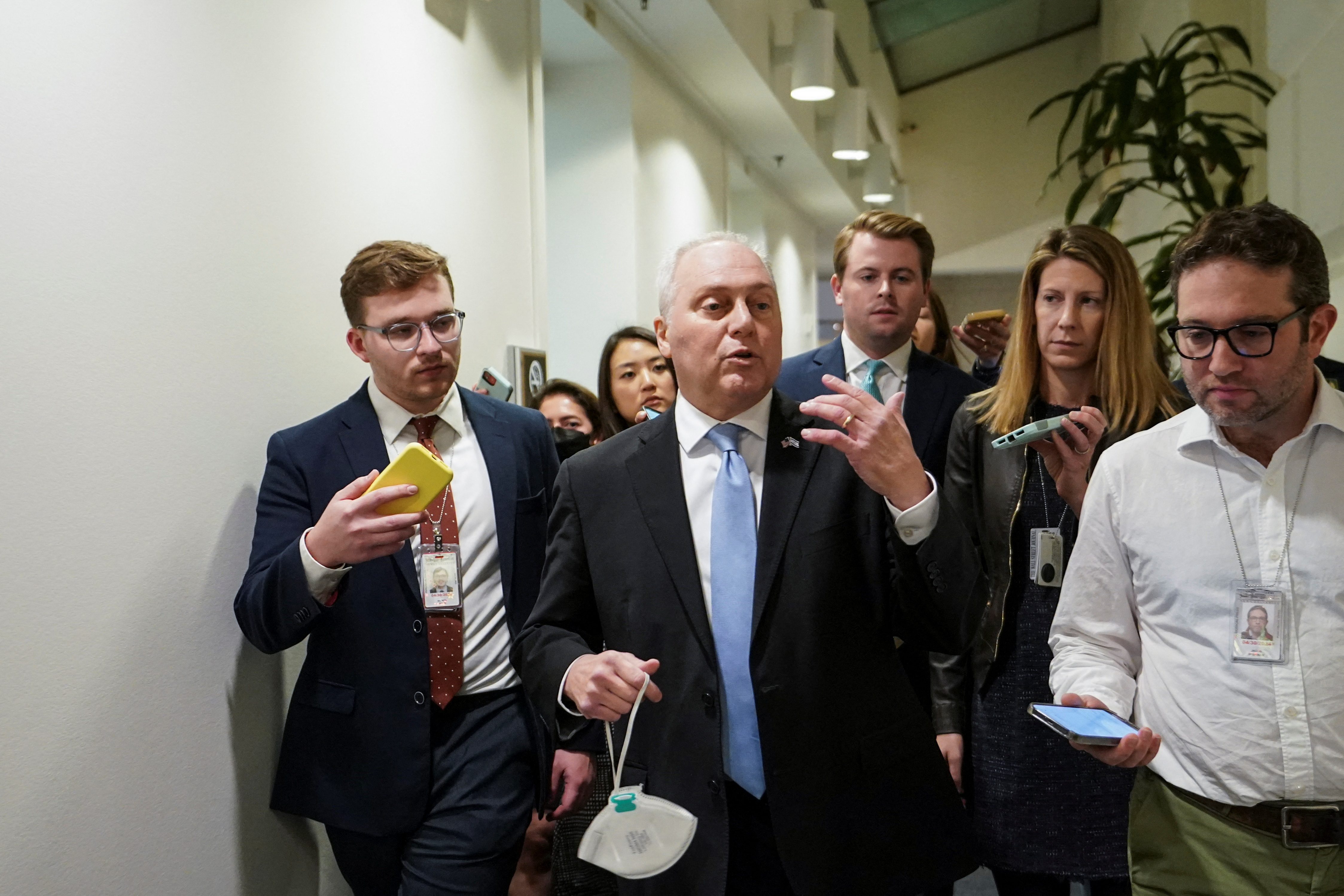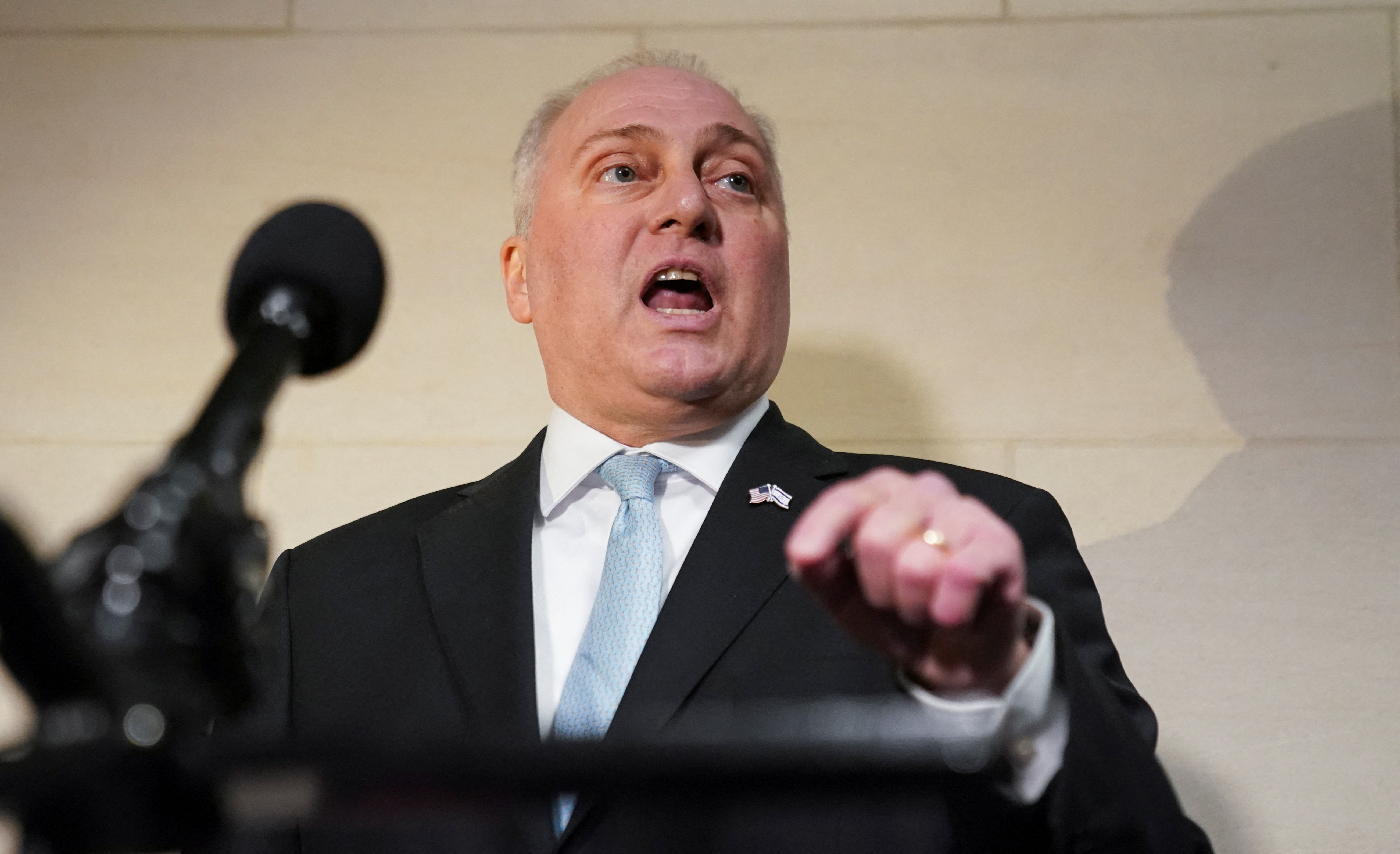Republicans in the U.S. House of Representatives spent hours in closed-door talks on Thursday but appeared no closer to resolving divisions that have prevented them from installing Steve Scalise as speaker of the chamber, which has been leaderless for nine days.
Scalise, the No.2 House Republican, has secured his party’s nomination to replace ousted Speaker Kevin McCarthy but is still short of the 217 votes needed to be elected on the House floor, as several of his fellow Republicans said they would not support him.
Republicans can afford no more than four defections as they control the House by a narrow 221-212 margin.
McCarthy, who was deposed by a small group of Republicans on Oct. 3, told reporters that Scalise had a “big hill” to get to 217 votes. “He told a lot of people he was going to be at 150 and he wasn’t there,” McCarthy said.
After a three-hour conference meeting failed to break the impasse, Scalise huddled with a smaller group of his supporters and opponents for a more intimate two-hour discussion that also yielded little progress.
“The progress that was made was those two groups understanding each other better. But I don’t know that anybody moved,” said Representative Thomas Massie, who supports rival Jim Jordan.
The Republican infighting has left the chamber unable to act to support Israel’s war against Palestinian militants of Hamas and pass government spending bills before funding runs out on Nov. 17.
Republicans hope to avoid a repeat of the embarrassing spectacle that occurred in January, when hardline conservatives forced McCarthy to endure 15 floor votes over four days before winning the gavel.
But some said they would not resolve the situation until they scheduled a vote on the House floor, where lawmakers would have to publicly reveal whether or not they supported Scalise.
Several Republicans said they would stick with Jordan, who lost to Scalise in a secret-ballot vote on Wednesday. Jordan has encouraged his supporters to vote for Scalise, according to a source who spoke on condition of anonymity.
“We’re at a standstill,” said hardline Representative Marjorie Taylor Greene, a Scalise opponent. Asked if the meeting changed her mind, she responded, “No way.”
While McCarthy was the first speaker to be removed in a formal vote, the last two Republicans to hold the job wound up leaving under pressure from party hardliners.
Several Republicans said they may need Democrats to bail them out.
“It’s pretty simple to me that if the House is going to reopen that the Democrats are going to have to be a willing player in whatever happens,” said Representative Steve Womack.
Democrats have backed their leader, Hakeem Jeffries, in past speaker votes and are expected to do so again.
One Democratic leadership aide, speaking on condition of anonymity, said they could support a bipartisan compromise but have not yet been approached by Republicans.
Scalise, 58, gained near legendary status within Republican circles by surviving a severe gunshot wound after a gunman opened fire during practice for a charity baseball game in 2017. He also commands widespread respect as a veteran legislator, who has spent years in party leadership positions.
But Scalise also faces new health concerns as he undergoes treatment for multiple myeloma, a form of blood cancer, which some Jordan supporters cited as a reason not to vote for him.
Jordan was endorsed by former President Donald Trump and appeared to be the favorite of populist minded hardliners.
Trump in an interview with Fox News Radio on Thursday said he did not object to Scalise as speaker.
“Steve is a man that is in serious trouble from the standpoint of his cancer. I mean, he’s got to get better for himself,” he said in an interview with Fox News Radio.
Related Galleries:


The post Republican dissension in US House threatens Steve Scalise speaker bid first appeared on The News And Times – thenewsandtimes.com.
